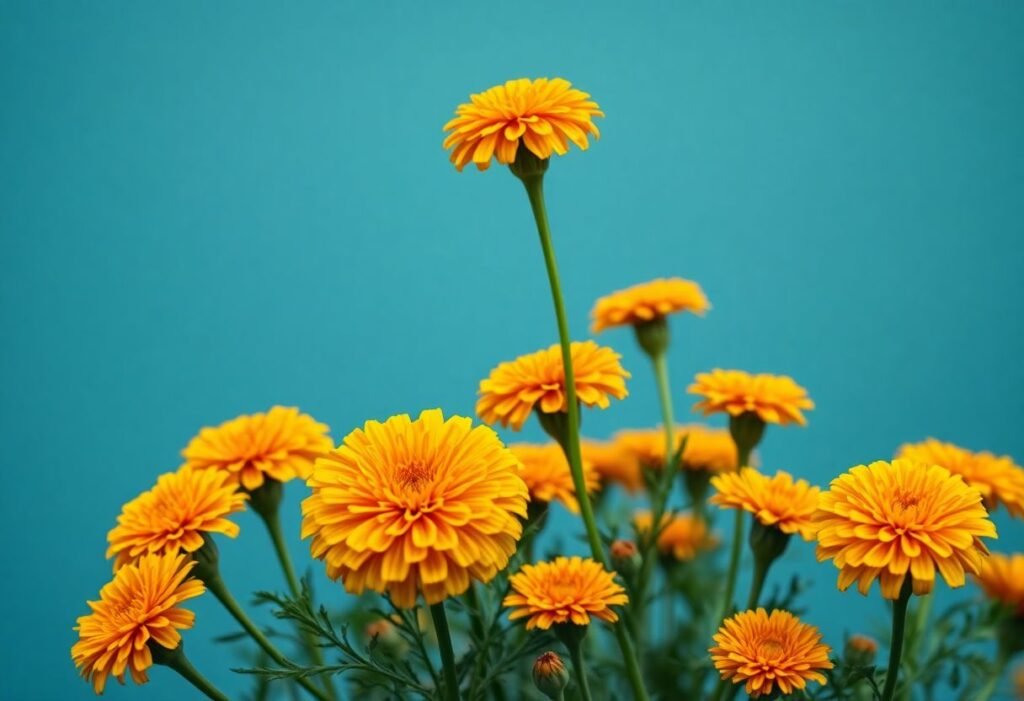The Lifespan of Marigolds in Your Garden
Marigolds are annual plants, meaning their life cycle spans just one growing season. Typically, they bloom from spring until the first frost, resulting in an average lifespan of about 8 to 12 months. Therefore, marigolds can serve as a vibrant and colorful presence in your garden, brightening your space for an extended period.
Factors Affecting Marigold Longevity
The lifespan of marigolds can vary based on several factors. Proper sunlight is one of the most critical aspects. Marigolds need at least six hours of sunlight per day to thrive. Additionally, the type of soil and watering are vital for their health. Overly wet soil can lead to rot and diseases, while too dry conditions may weaken their vigor.
Caring for Your Marigolds
For marigolds to enjoy a long and thriving life, proper care is essential. Regular watering is a key factor to keeping their roots firmly anchored at the right moisture level. Moreover, it’s important to regularly deadhead spent blooms to encourage further flowering and prevent overcrowding. Good fertilization practices can also support their growth and vitality.
Marigolds in Varied Conditions
Some marigold varieties are resilient in less-than-ideal conditions, making them perfect for less experienced gardeners. Their resistance to pests and diseases means they’re excellent choices for gardens that don’t require excessive care. Your experience and attentiveness will be pivotal for their longevity.
Utilizing Marigolds in Your Garden
Marigolds are not only beautiful flowers; they can also play diverse roles in the garden. These plants can serve as natural repellents for certain pests, making them a valuable addition to vegetable gardens. By strategically planting marigolds throughout your garden, you can gain both aesthetic enjoyment and practical benefits.
Marigolds and Seasonal Changes
Marigolds shine in warmer months, so their lifespan is also dependent on the season. Spring and summer are when they thrive best. However, as cooler days arrive, their growth slows down. It is important to collect seeds or transplant them indoors to extend their life further.
Additional Uses for Marigolds
Beyond their ornamental beauty, marigolds are also utilized in natural medicine. Extracts from these flowers are known for their anti-inflammatory properties and can be used as natural skincare products. Their versatility makes them a valuable ingredient both in the garden and daily life.
Conclusion
In conclusion, marigolds are beautiful and reliable flowers that can adorn your garden for many months. By taking appropriate care and adjusting their growth conditions, you can enjoy their beauty for a long time. We encourage you to plant marigolds in your garden today and discover the wonderful world they have to offer!
Disclaimer
This article is for informational purposes only. Always consult with a professional before making gardening decisions.

















